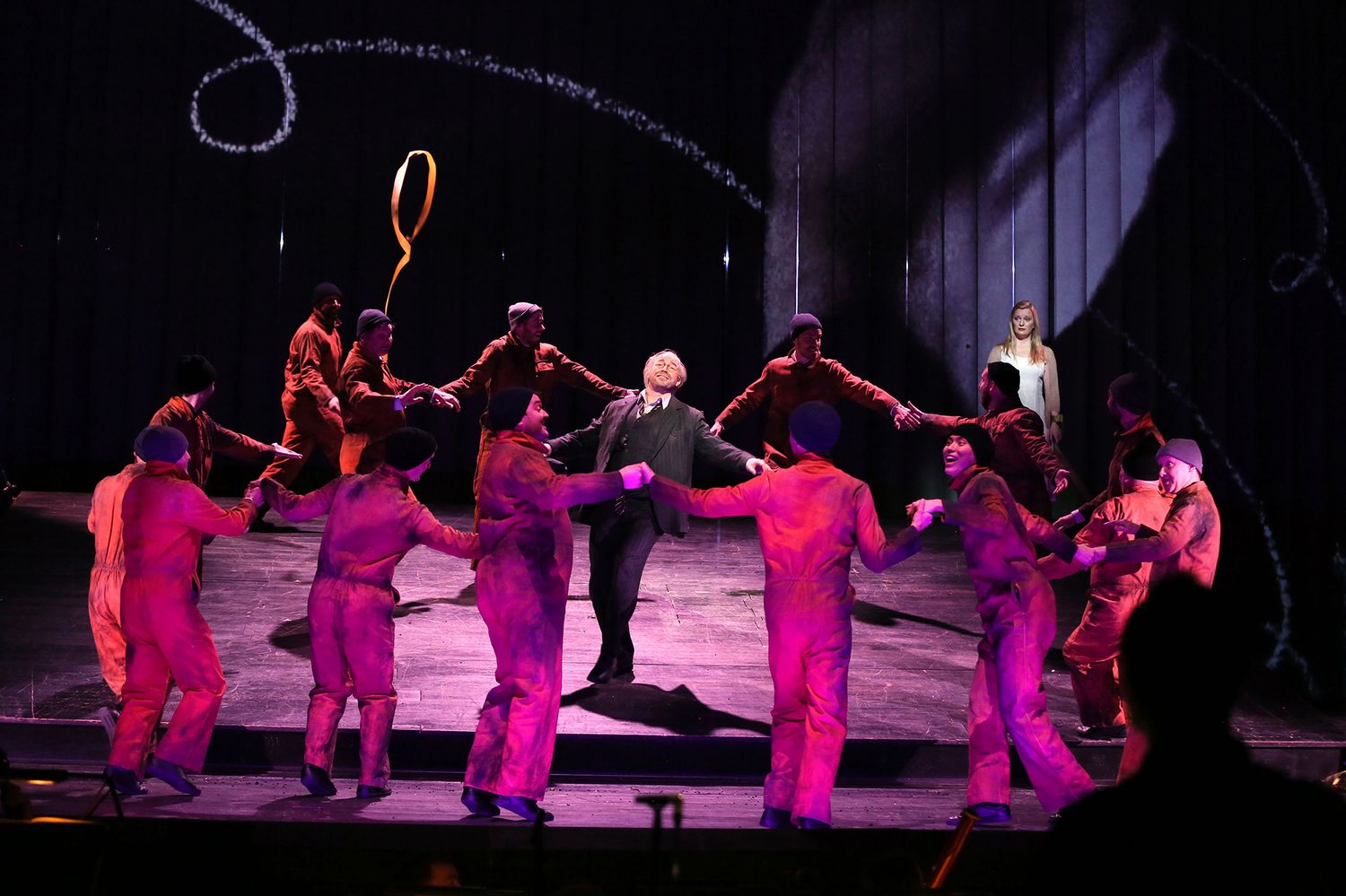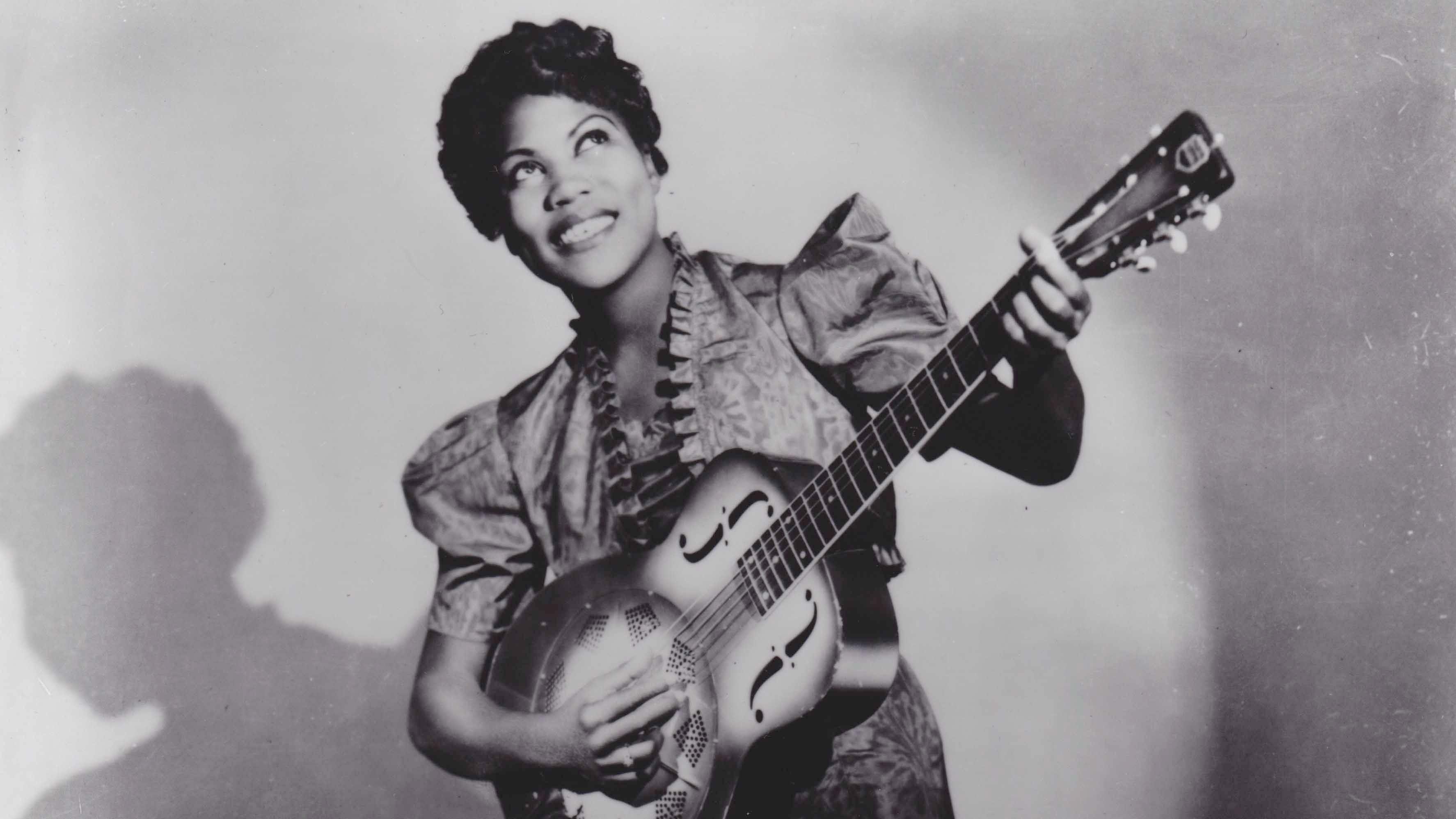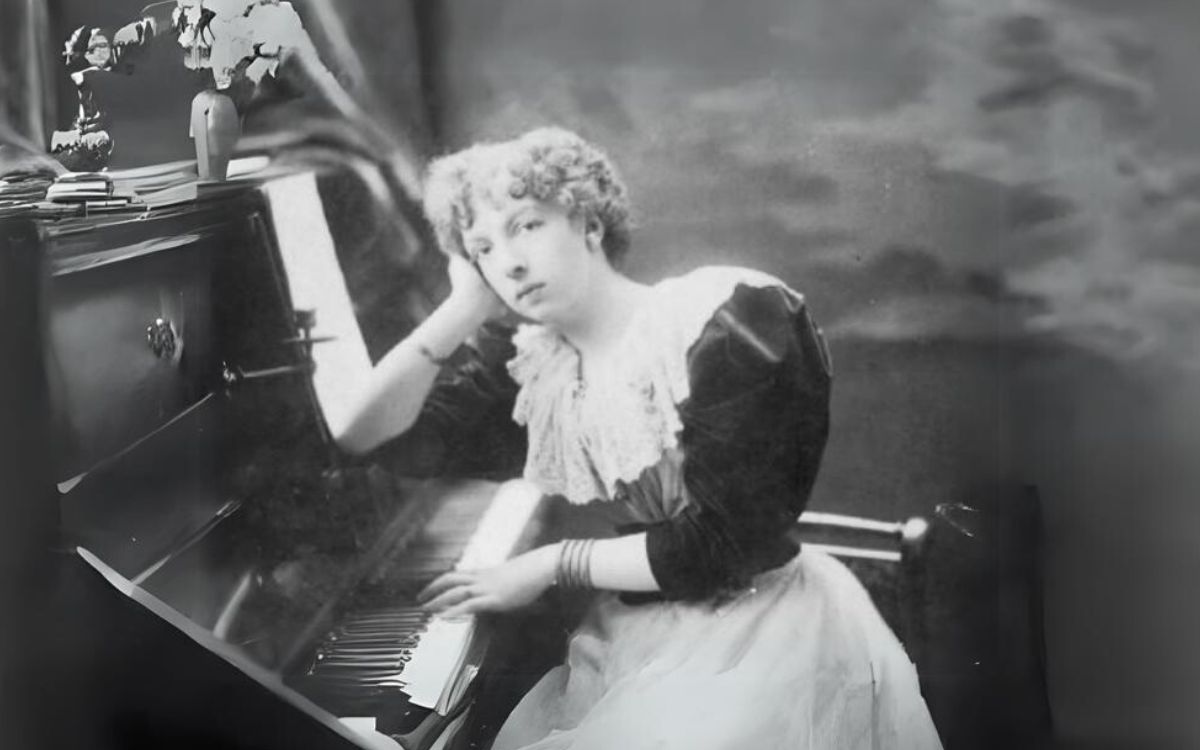Home>Production & Technology>Songwriter>Who Was The First Professional Songwriter In The United States?


Songwriter
Who Was The First Professional Songwriter In The United States?
Published: February 26, 2024
Discover the fascinating history of the first professional songwriter in the United States and their impact on music. Learn about the pioneering contributions of this influential figure in songwriting.
(Many of the links in this article redirect to a specific reviewed product. Your purchase of these products through affiliate links helps to generate commission for AudioLover.com, at no extra cost. Learn more)
Table of Contents
Introduction
The art of songwriting has long been revered as a powerful means of storytelling, emotional expression, and cultural preservation. In the United States, the evolution of songwriting has been a rich tapestry woven with diverse influences, from traditional folk tunes to the emergence of popular music genres. As the country's musical landscape blossomed, so did the role of professional songwriters, who played a pivotal part in shaping the nation's musical identity.
The journey of songwriting in the United States is a captivating narrative that mirrors the nation's growth and transformation. From the early days of colonial America to the present, songwriters have crafted melodies that resonate with the collective experiences of the American people. Their compositions have served as anthems of freedom, protest, love, and resilience, etching indelible imprints on the cultural fabric of the nation.
As we delve into the annals of American songwriting, we embark on a voyage through time, tracing the footsteps of the visionary wordsmiths and composers who left an indelible mark on the nation's musical heritage. From the bustling streets of New York City to the serene landscapes of the rural heartlands, the melodies born from the pens of these songwriters have transcended geographical boundaries, uniting hearts and souls in a harmonious symphony of emotions.
In this exploration, we will unravel the early history of songwriting in the United States, examining the cultural influences that shaped the musical landscape. We will also delve into the rise of professional songwriters, exploring the dynamic shifts in the industry that paved the way for individuals to dedicate themselves fully to the craft of songwriting. Moreover, we will shine a spotlight on the first professional songwriter in the United States, unraveling the story of this trailblazing figure whose contributions laid the foundation for future generations of songsmiths.
Join us on this captivating journey as we celebrate the enduring legacy of the first professional songwriter and the profound impact of their artistry on the musical tapestry of the United States. Through this exploration, we aim to pay homage to the pioneers of American songwriting and gain a deeper appreciation for the profound influence of their timeless compositions.
Early History of Songwriting in the United States
The early history of songwriting in the United States is a captivating saga that intertwines with the nation's cultural evolution. The roots of American songwriting can be traced back to the indigenous peoples who inhabited the land long before the arrival of European settlers. These diverse communities crafted songs that reflected their spiritual beliefs, traditions, and oral histories, using music as a means of passing down knowledge from one generation to the next.
With the arrival of European colonists, new musical influences permeated the American landscape. The colonial era witnessed the blending of European musical traditions with the melodies and rhythms of African slaves, giving rise to a rich tapestry of musical expression. Folk songs, ballads, and spiritual hymns became integral components of the burgeoning American musical identity, serving as conduits for storytelling and communal bonding.
The 19th century marked a period of significant expansion and transformation in the realm of American songwriting. As the nation grappled with issues of identity, freedom, and cultural amalgamation, songwriters began to craft compositions that encapsulated the spirit of the era. The advent of minstrel shows brought forth a new wave of popular music, with songs that reflected the sentiments of both the North and the South.
Moreover, the emergence of sheet music and the proliferation of music publishing houses facilitated the dissemination of songs to a wider audience. This development not only enabled songwriters to reach broader demographics but also contributed to the commercialization of music, laying the groundwork for the professionalization of songwriting in the United States.
The early history of songwriting in the United States is a testament to the enduring power of music as a vehicle for cultural expression and societal reflection. The melodies born from this era continue to resonate with contemporary audiences, serving as poignant reminders of the nation's rich musical heritage.
Throughout the centuries, American songwriting has evolved in tandem with the nation's social, political, and cultural landscape, reflecting the triumphs, struggles, and aspirations of its people. This historical backdrop sets the stage for the emergence of professional songwriters who would play a pivotal role in shaping the future of American music, leaving an indelible mark on the nation's artistic tapestry.
The Rise of Professional Songwriters
The 20th century heralded a transformative era for American songwriting, marked by the ascent of professional songwriters who dedicated themselves to the craft of musical composition. This period witnessed dynamic shifts in the music industry, paving the way for individuals to pursue songwriting as a full-time vocation.
The proliferation of recording technology and the advent of radio broadcasting revolutionized the dissemination of music, amplifying the reach of compositions and expanding the audience base. As a result, the demand for captivating and resonant songs surged, prompting a surge in opportunities for songwriters to contribute their talents to the ever-growing musical landscape.
Moreover, the emergence of music publishing companies and record labels further fueled the professionalization of songwriting. These entities sought to discover and nurture talented songwriters, offering them avenues to showcase their compositions to a broader audience. The establishment of dedicated songwriting departments within music publishing houses provided aspiring songsmiths with mentorship, resources, and platforms to refine their skills and gain exposure in the industry.
The rise of professional songwriters also paralleled the evolution of popular music genres, each presenting unique opportunities for artistic innovation and commercial success. From the soul-stirring ballads of the Tin Pan Alley era to the revolutionary sounds of rock 'n' roll and the poignant lyricism of folk music, songwriters found themselves at the forefront of musical experimentation, shaping the sonic landscape with their evocative verses and melodies.
Furthermore, the advent of performance rights organizations such as ASCAP and BMI played a pivotal role in advocating for the rights and royalties of songwriters, ensuring that their creative contributions were duly recognized and compensated. This development empowered songwriters to pursue their craft with a greater sense of security and stability, fostering an environment conducive to artistic exploration and expression.
The rise of professional songwriters in the United States not only transformed the music industry but also left an enduring impact on the nation's cultural tapestry. These visionary wordsmiths and composers, driven by their passion for storytelling and sonic innovation, played an instrumental role in shaping the soundtrack of American life, leaving an indelible imprint on the hearts and minds of generations to come.
As the era of professional songwriting unfolded, it set the stage for the emergence of trailblazing individuals who would redefine the boundaries of musical creativity, paving the way for future generations of songwriters to continue the legacy of innovation and inspiration.
The rise of professional songwriters in the United States not only transformed the music industry but also left an enduring impact on the nation's cultural tapestry. These visionary wordsmiths and composers, driven by their passion for storytelling and sonic innovation, played an instrumental role in shaping the soundtrack of American life, leaving an indelible imprint on the hearts and minds of generations to come.
As the era of professional songwriting unfolded, it set the stage for the emergence of trailblazing individuals who would redefine the boundaries of musical creativity, paving the way for future generations of songwriters to continue the legacy of innovation and inspiration.
The First Professional Songwriter in the United States
The dawn of professional songwriting in the United States heralded the emergence of trailblazing individuals who would leave an indelible mark on the nation's musical landscape. Among these pioneering figures, one luminary stands out as the first professional songwriter in the annals of American music history – Stephen Foster.
Stephen Foster, born on July 4, 1826, in Lawrenceville, Pennsylvania, was a visionary wordsmith and composer whose enduring legacy has solidified his status as a seminal figure in the realm of American songwriting. Foster's remarkable journey into the world of professional songcraft began in the mid-19th century, a time marked by profound societal changes and burgeoning artistic expression.
Foster's compositions encompassed a diverse array of themes, from love and nostalgia to the complexities of the human experience. His melodies, imbued with poignant lyricism and captivating harmonies, resonated deeply with audiences across the nation, earning him widespread acclaim and recognition as a preeminent songwriter.
One of Foster's most iconic compositions, "Oh! Susanna," catapulted him into the spotlight, capturing the hearts of listeners with its infectious melody and evocative storytelling. The song's widespread popularity not only established Foster as a prominent figure in the music industry but also laid the foundation for his enduring legacy as a pioneer of professional songwriting in the United States.
Foster's innovative approach to songcraft, characterized by his adept fusion of diverse musical influences, set a precedent for future generations of songwriters. His compositions transcended regional boundaries, resonating with audiences from all walks of life and cementing his position as a visionary wordsmith whose artistry transcended the confines of time and space.
Moreover, Foster's collaborations with music publishers and his astute understanding of the commercial aspects of songwriting set him apart as a trailblazer in the nascent realm of professional songcraft. His ability to navigate the intricacies of the music industry, coupled with his unwavering commitment to artistic integrity, positioned him as a vanguard of innovation and creativity.
Foster's enduring contributions to American songwriting underscore his pivotal role as the first professional songwriter in the United States. His legacy serves as a testament to the transformative power of music and the profound impact of visionary artists who dare to push the boundaries of creative expression.
As the inaugural torchbearer of professional songwriting in the United States, Stephen Foster's visionary spirit continues to inspire and resonate with contemporary songwriters, reaffirming his status as a luminary whose timeless compositions remain etched in the hearts of music enthusiasts around the world.
Legacy of the First Professional Songwriter
The legacy of the first professional songwriter in the United States, Stephen Foster, reverberates through the corridors of American music history, leaving an enduring imprint on the nation's cultural tapestry. Foster's indelible contributions to the realm of songwriting transcend temporal confines, resonating with contemporary audiences and serving as a testament to the transformative power of musical storytelling.
Foster's pioneering spirit and innovative approach to songcraft laid the groundwork for future generations of songwriters, inspiring them to explore the boundless realms of creative expression. His compositions, characterized by their evocative lyricism and captivating melodies, continue to evoke profound emotions, offering poignant glimpses into the human experience.
Moreover, Foster's astute navigation of the commercial aspects of songwriting set a precedent for the professionalization of the craft, demonstrating the symbiotic relationship between artistic integrity and commercial viability. His ability to forge collaborations with music publishers and leverage the burgeoning platforms for music dissemination showcased the transformative potential of songwriting as a vocation.
Furthermore, Foster's enduring legacy serves as a beacon of artistic innovation, reminding contemporary songwriters of the power of storytelling through music. His compositions, including timeless classics such as "Oh! Susanna," "Beautiful Dreamer," and "My Old Kentucky Home," continue to resonate with audiences, transcending generational boundaries and reaffirming the timeless relevance of his artistry.
The profound impact of Foster's legacy extends beyond the realm of music, encapsulating the essence of cultural preservation and societal reflection. His compositions, rooted in the multifaceted experiences of the American people, serve as sonic chronicles of bygone eras, offering poignant insights into the triumphs, struggles, and aspirations of the nation.
As contemporary songwriters draw inspiration from Foster's timeless oeuvre, his legacy perpetuates a tradition of artistic excellence and storytelling prowess. The enduring relevance of his compositions underscores the enduring power of music as a conduit for empathy, understanding, and collective remembrance, reinforcing the profound impact of the first professional songwriter on the ever-evolving narrative of American music.
In essence, the legacy of the first professional songwriter, Stephen Foster, stands as a testament to the enduring power of musical creativity and the timeless resonance of evocative storytelling. His pioneering spirit continues to inspire and guide contemporary songwriters, fostering a legacy of innovation, empathy, and cultural preservation that transcends the boundaries of time and space.











